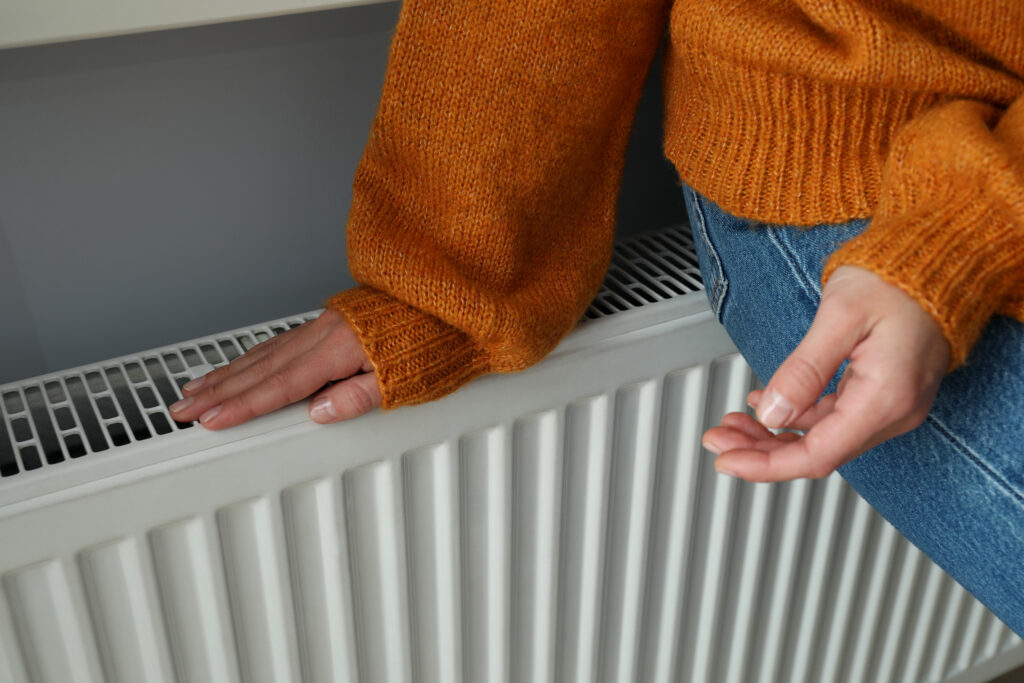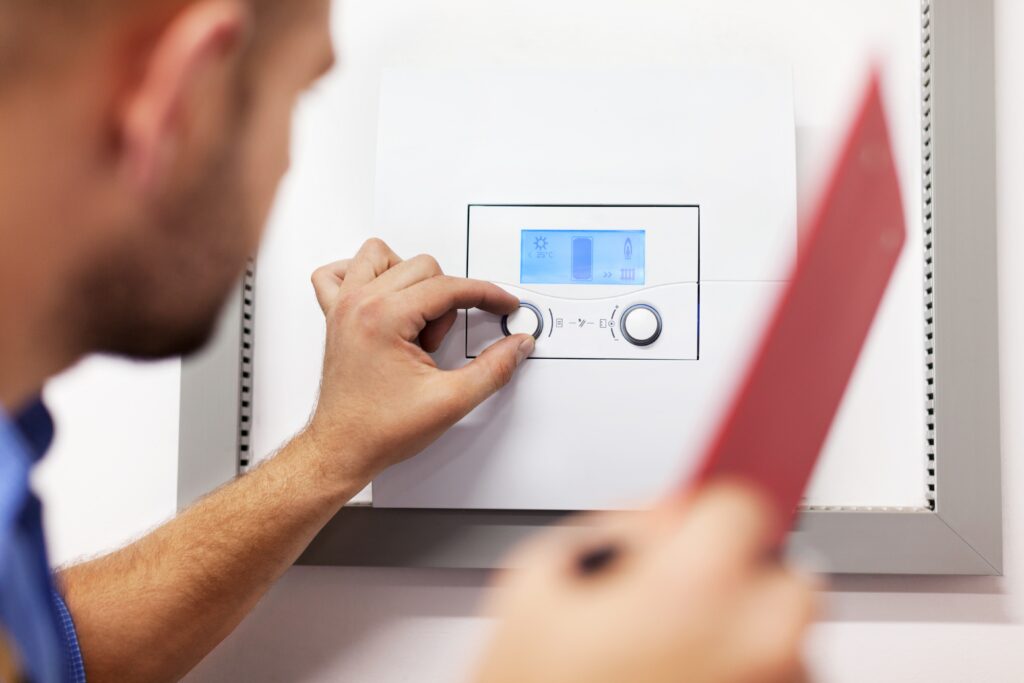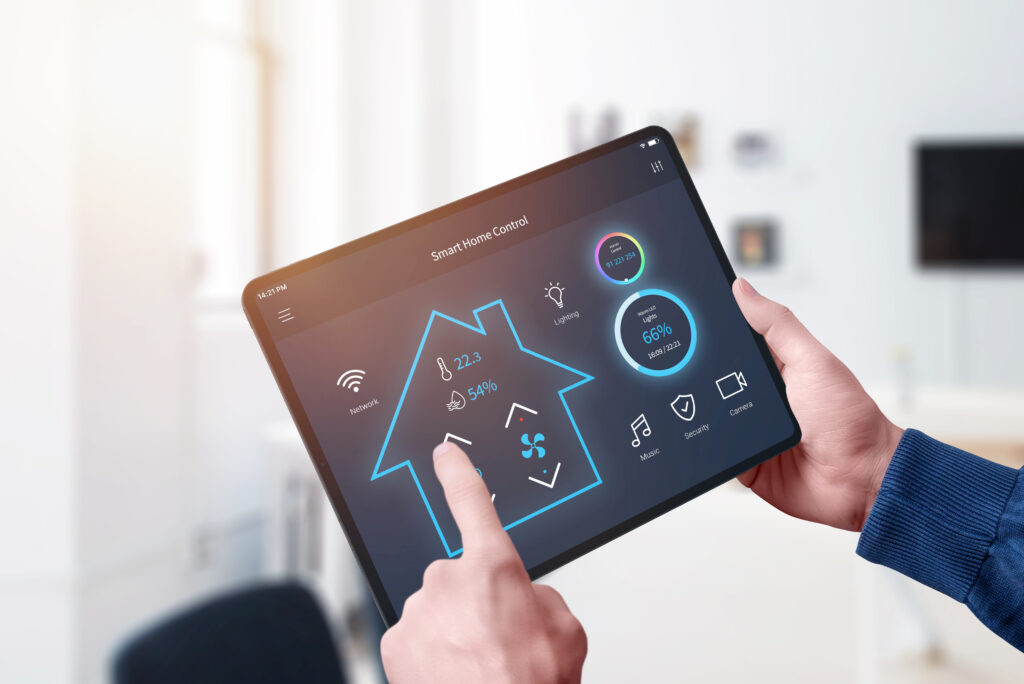Liquefied Petroleum Gas Boilers Explained by Heat-Tec
LPG (Liquefied Petroleum Gas) boilers are a popular choice for UK homes, especially in areas not connected to the mains gas grid. Known for their efficiency and versatility, LPG boilers can power central heating systems and provide hot water reliably. This guide explores what an LPG boiler is, how it works, and the benefits and considerations associated with it to help homeowners determine if an LPG boiler is the right fit for their needs.
Introduction to LPG Boilers
An LPG boiler operates on liquid petroleum gas, commonly stored in tanks or cylinders, making it an ideal solution for homes in remote areas without access to natural gas. LPG boilers are versatile, available in various models, and compatible with both heating systems and underfloor heating. They offer an alternative for those seeking efficient heating solutions while reducing their reliance on electricity or solid fuels.
How Does an LPG Boiler Work?
LPG boilers work similarly to natural gas boilers but use LPG as the fuel source. When the boiler is activated, LPG from the storage tank flows into the boiler and is ignited. The combustion process generates heat, which is then transferred to water that circulates through radiators, underfloor heating, or hot water taps, depending on the system’s configuration. The key components include:
- Burner: Where the LPG is ignited to produce heat.
- Heat Exchanger: Transfers heat to water or air, which is then distributed throughout the home.
- Water Circuit: Carries hot water through radiators or to taps.
The result is a highly efficient and responsive heating system that can deliver steady warmth and hot water on demand.
Types of LPG Boilers
LPG boilers come in several types, each with unique features and benefits:
- Combination (Combi) Boilers: These provide both hot water and central heating without the need for a separate water tank, making them ideal for smaller homes.
- System Boilers: These boilers work well for larger homes, with a separate hot water tank for storing heated water.
- Regular (Conventional) Boilers: A more traditional setup, these require a water storage tank, making them suitable for homes with higher hot water demands.
Each type of boiler has distinct advantages depending on a household’s space and water needs.
Benefits of Using an LPG Boiler
LPG boilers offer several key advantages:
- Energy Efficiency: LPG boilers are often highly efficient, with many models boasting efficiencies above 90%, resulting in cost-effective heating.
- Reliable for Off-Grid Homes: LPG is readily available even in remote areas, making it a viable option where natural gas is unavailable.
- Environmentally Friendly: LPG burns cleaner than coal or oil, producing lower emissions, which is beneficial for reducing a home’s carbon footprint.
- Compact Design Options: Combi LPG boilers, in particular, are compact and easy to install in smaller spaces.
- On-Demand Hot Water: Many LPG boilers can provide hot water instantly, reducing wait times for household needs.
Drawbacks of LPG Boilers
While efficient, LPG boilers come with a few potential downsides:
- Fuel Storage Requirements: LPG needs to be stored in a tank, which requires space and periodic refills.
- Higher Fuel Cost: LPG can be more expensive per unit than natural gas, though prices fluctuate based on location and demand.
- Dependence on Regular Deliveries: Unlike natural gas, LPG requires regular deliveries, which means homeowners need to monitor tank levels closely.
Comparing LPG Boilers to Other Fuel Types
When choosing a heating solution, it’s essential to compare LPG with other fuel options:
- LPG vs. Natural Gas: Natural gas is cheaper per unit and more convenient as it’s piped directly to homes, while LPG is ideal for off-grid properties.
- LPG vs. Oil: Both require tank storage, but LPG is cleaner-burning and less harmful to the environment.
- LPG vs. Electric Heating: Electric heating is often less efficient and costlier over time, making LPG a better choice for households with high heating needs.
Installation and Storage Considerations
Installing an LPG boiler involves connecting the system to an LPG storage tank, which can be above or below ground based on space availability and aesthetic preference. Safety regulations mandate that LPG storage tanks are placed at a safe distance from the home, and it’s essential to have enough space for easy delivery and refilling. A professional heating engineer can assess your property and determine the optimal location and setup for both the tank and the boiler.
Maintenance Tips for LPG Boilers
Regular maintenance ensures an LPG boiler remains efficient and safe:
- Annual Servicing: An annual check-up by a Gas Safe registered engineer helps maintain optimal performance.
- Tank Inspections: Regularly inspecting and cleaning the tank prevents leaks and other issues.
- Ventilation and Flue Maintenance: Keeping the boiler area clear and ensuring the flue is unobstructed prevents harmful gases from accumulating.
- Monitor Pressure Levels: Checking pressure levels regularly helps avoid malfunctions and keeps the system running smoothly.
Costs Associated with LPG Boilers
While LPG boilers are efficient, the costs associated with installation and fuel should be considered:
- Initial Boiler and Tank Installation: Installation costs vary but typically start from around £2000, depending on the system and property requirements.
- Fuel Costs: LPG costs fluctuate; however, setting up automatic deliveries or monitoring for lower prices can help manage these expenses.
- Regular Maintenance: Annual servicing and upkeep are necessary and add to the overall costs but help prolong the boiler’s lifespan.
Is an LPG Boiler Right for Your Home?
An LPG boiler may be ideal if:
- You live in a rural area where gas isn’t available.
- You have enough outdoor space for a storage tank.
- You’re looking for an energy-efficient, responsive heating solution.
However, if minimising installation and fuel costs is a priority, or if your property has limited outdoor space, other heating systems may be worth exploring.
FAQ’s On LPG Boilers
What is an LPG boiler?
An LPG boiler is a heating system that uses liquefied petroleum gas (LPG) as its fuel source. Unlike natural gas boilers connected to the mains gas grid, LPG boilers rely on fuel stored in external tanks or cylinders. This setup makes them particularly suitable for properties in rural or remote areas without access to mains gas. LPG gas boilers operate by burning the stored LPG to heat water, which is then circulated through radiators or underfloor heating systems to provide warmth and hot water to the property.
How does an LPG central heating system work?
An LPG central heating system functions similarly to a natural gas system but uses liquefied petroleum gas stored on-site. When the thermostat signals a need for heat, the LPG boiler ignites the gas from the storage tank. The combustion process heats water within the boiler, which is then pumped through a network of pipes to radiators or underfloor heating, distributing warmth throughout the building. Simultaneously, the system can provide hot water to taps and showers. The efficiency and responsiveness of LPG central heating make it a viable alternative for off-grid properties.
What are the advantages of using an LPG system boiler?
An LPG system boiler offers several benefits:
High Efficiency: LPG boilers are known for their high efficiency, often achieving over 90% efficiency rates, which can lead to reduced fuel consumption and lower heating bills.
Environmental Friendliness: LPG burns cleaner than oil or coal, producing fewer carbon emissions and particulates, making it a more environmentally friendly option.
Versatility: LPG is not just limited to heating; it can also be used for cooking, providing a similar experience to natural gas. Additionally, LPG can be used in gas-powered appliances like ovens, stoves, and fireplaces.
Space Efficiency: LPG system boilers require an external storage tank for the gas supply, but the boiler units themselves are often compact, making them suitable for properties with limited indoor space.
These advantages make LPG system boilers a compelling choice for homeowners seeking efficient and flexible heating solutions.
Are LPG gas boilers suitable for homes without mains gas access?
Yes, LPG gas boilers are particularly suitable for homes not connected to the mains gas network. For properties in rural or remote areas, LPG heating systems provide a reliable and efficient alternative. The fuel is delivered and stored on-site in tanks or cylinders, ensuring a consistent supply for heating and hot water needs. This independence from the mains gas grid allows homeowners greater flexibility in managing their energy sources while still benefiting from the efficiency and performance of modern LPG boilers.
What considerations are there for installing an LPG central heating boiler?
When installing an LPG central heating boiler, several factors should be considered:
Fuel Storage: LPG requires a storage tank or cylinders, which must be installed in compliance with safety regulations, including proper placement and accessibility for deliveries.
Supply Management: Homeowners need to monitor fuel levels and arrange for regular deliveries to ensure an uninterrupted supply.
Installation Costs: The initial setup may involve higher costs due to the need for storage solutions and potential modifications to existing heating infrastructure.
Maintenance: Regular maintenance by qualified professionals is essential to ensure the safe and efficient operation of the LPG heating system.
By carefully considering these factors, homeowners can effectively integrate an LPG central heating boiler into their property, ensuring a reliable and efficient heating solution.
How does LPG heating compare to other heating options?
LPG heating offers a balance between efficiency, environmental impact, and practicality, especially for off-grid properties. Compared to oil-fired systems, LPG boilers produce fewer emissions and often have higher efficiency ratings. While LPG can be more expensive per unit than natural gas, it provides a viable alternative for homes without mains gas access. Additionally, LPG burns cleaner than oil, resulting in less maintenance and a longer lifespan for the boiler. When compared to electric heating, LPG systems typically offer lower running costs and more responsive heating. Homeowners should assess fuel availability, environmental considerations, and long-term costs when choosing the most suitable heating option for their needs.
Thanks for reading todays blog from Heat-Tec
LPG boilers provide a flexible, efficient heating solution, especially for homes in off-grid locations. With a range of models available, including combi, system, and conventional setups, LPG boilers can cater to various home sizes and heating requirements. By understanding the benefits, maintenance needs, and potential costs, you can determine if an LPG boiler is the right fit for your household. Professional boiler installation and annual servicing will ensure that your system runs safely and efficiently, providing warmth and comfort for years to come. Contact Heat-Tec today with any boiler queries.




